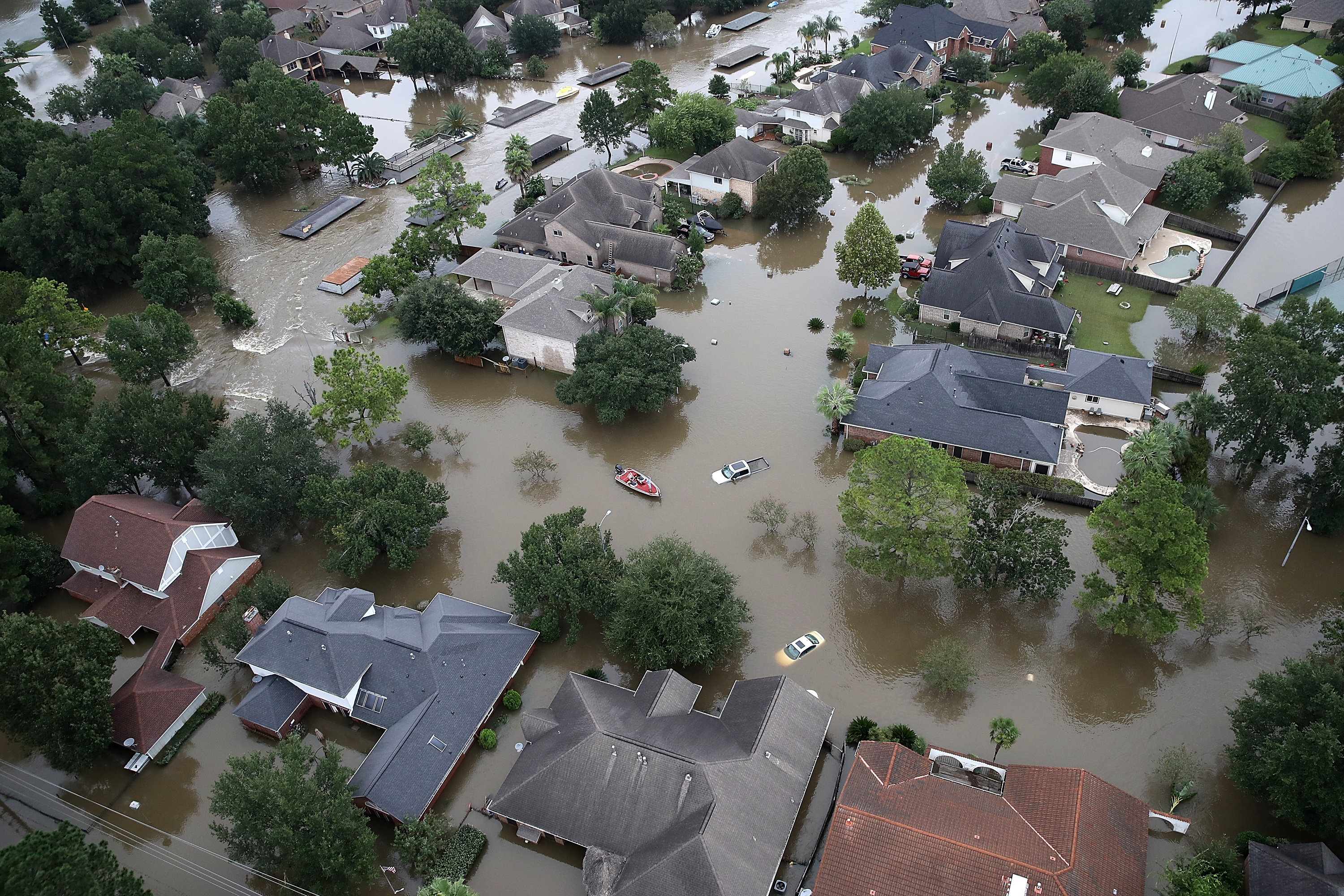The economics of denial
Why high-carbon states don't believe in climate change


This is the editor’s letter in the current issue of The Week magazine.
"It is difficult to get a man to understand something when his salary depends on his not understanding it." Upton Sinclair said this nearly a century ago, but it continues to explain much, including many Americans' adamant refusal to accept the reality of climate change. In the past three weeks, two monstrous hurricanes of historic intensity devastated large swathes of Texas, Florida, and the Caribbean. Climate change didn't cause Harvey and Irma, but climatologists suspect a warming planet made these killer hurricanes more destructive. (Total damage: upwards of $200 billion.) It's simple physics: Hurricanes draw their energy from warm ocean waters, and the Gulf, Caribbean, and southern Atlantic are significantly warmer right now than their historic norms. Warmer air also can carry more moisture. Harvey dumped more rain on Houston — about 50 inches — than any storm in U.S. history. Irma howled at 180 mph for 37 hours, a record, and was the second Category 4 storm to hit the U.S. in three weeks. Coincidence?
Perhaps. But this is where paychecks, motivated reasoning, and tribal politics enter the picture. As Ron Brownstein points out at CNN this week, the U.S. can be divided into "high carbon" and "low carbon" states. High carbon states produce large amounts of oil, gas, and coal, and rely on industries that burn lots of fossil fuels. They are invariably "red" or Republican. Low carbon states, located mainly on the coasts, have economies that depend mostly on financial, service, and information-age companies. They are blue. In red states like Wyoming, North Dakota, and Texas, the per-capita carbon dioxide emission levels also are much higher, because they're largely rural and people rely on cars and machinery. In 2016, President Trump carried 20 of the 21 states with the highest per capita carbon emissions. In these states, the implications of accepting climate change are understandably alarming — more alarming, evidently, than even two Category 4 hurricanes.
The Week
Escape your echo chamber. Get the facts behind the news, plus analysis from multiple perspectives.

Sign up for The Week's Free Newsletters
From our morning news briefing to a weekly Good News Newsletter, get the best of The Week delivered directly to your inbox.
From our morning news briefing to a weekly Good News Newsletter, get the best of The Week delivered directly to your inbox.
A free daily email with the biggest news stories of the day – and the best features from TheWeek.com
William Falk is editor-in-chief of The Week, and has held that role since the magazine's first issue in 2001. He has previously been a reporter, columnist, and editor at the Gannett Westchester Newspapers and at Newsday, where he was part of two reporting teams that won Pulitzer Prizes.
-
 6 homes for entertaining
6 homes for entertainingFeature Featuring a heated greenhouse in Pennsylvania and a glamorous oasis in California
-
 Obesity drugs: Will Trump’s plan lower costs?
Obesity drugs: Will Trump’s plan lower costs?Feature Even $149 a month, the advertised price for a starting dose of a still-in-development GLP-1 pill on TrumpRx, will be too big a burden for the many Americans ‘struggling to afford groceries’
-
 The ‘Kavanaugh stop’
The ‘Kavanaugh stop’Feature Activists say a Supreme Court ruling has given federal agents a green light to racially profile Latinos
